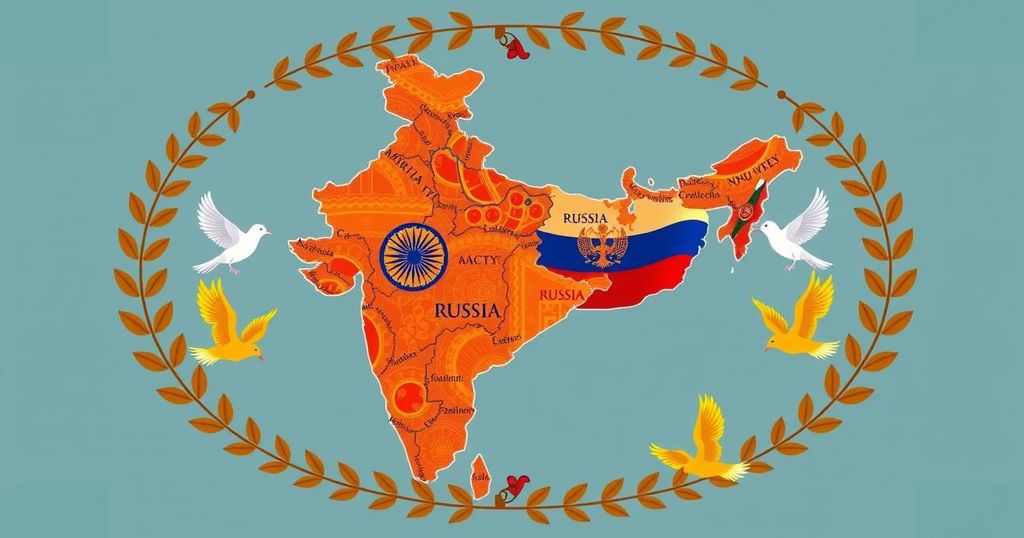The Russia-Ukraine war has elicited complex opinions in India, with 27% of respondents supporting Russia’s actions, while 34% oppose them. A significant portion remains unaware or has refrained from offering an opinion. Education and exposure to Western media significantly influence perspectives, as does geographical diversity, with critical opinions prevailing in smaller cities. This reveals a multifaceted discourse on international affairs in Indian society.
The ongoing Russia-Ukraine war has significantly influenced global geopolitics, generating complex and fractured opinions within India. Survey results indicate that 27% of respondents perceive Russia’s actions as necessary, while 34% regard them as unjustified. Moreover, 23% of individuals indicate a lack of awareness regarding the conflict, which emphasizes a notable knowledge gap about international matters in the Indian populace. Additionally, 16% opted not to express any opinion, indicating diverse perspectives on Russia’s actions in Ukraine.
The role of education emerged as a crucial factor in shaping public opinion about the war. Among individuals with limited or no formal education, 42% were unaware of the conflict. Only 19% within this demographic deemed Russia’s actions as unjustified, suggesting minimal engagement with international issues. For respondents possessing intermediate education, opinions were more divided, with 27% viewing the actions as necessary and a similar proportion unaware. Conversely, college-educated individuals displayed a pronounced critical perspective, with 41% opposing Russia’s actions, alongside a mere 16% unaware of the situation, elucidating a correlation between higher education and enhanced awareness of global affairs.
Exposure to Western culture through various mediums significantly influences perspectives on the Russia-Ukraine conflict. The survey revealed that individuals with no exposure to Western entertainment exhibited a higher tendency to be unaware (37%) or refrain from expressing opinions (27%). In contrast, those with moderate exposure expressed more definitive views, with 44% deeming Russia’s actions unjustified. Findings suggest that familiarity with Western media shapes public perceptions, illustrating the power of global media in opinion formation.
Further analysis indicated regional differences in public opinion based on city size. Respondents from smaller cities were notably critical, with 41% deeming Russia’s actions unjustified. Mid-sized cities exhibited 31% critical opinions, whereas in larger cities, responses were more mixed with 31% perceiving the actions as necessary. The data indicates varying opinions on this issue across different urban settings, indicating the complexity of public discourse influenced by socio-economic factors and cultural backgrounds.
In conclusion, the assessment of Indian opinions on the Russia-Ukraine conflict reveals a multifaceted public discourse shaped by education, media exposure, and urban demographics. While a significant section remains critical of Russia’s actions, notable portions of the population express uncertainty or justify the actions, highlighting the diversity of perspectives in the society. This nuanced understanding is essential for comprehending the broader implications of the conflict within India’s socio-political landscape.
The analysis of public opinion in India regarding the Russia-Ukraine conflict illustrates a complex interplay of education, media exposure, and urban demographics in shaping perspectives. With varying levels of awareness and differing opinions, the findings highlight the diverse nature of Indian society’s viewpoints on international issues, emphasizing the importance of enhancing education and media literacy to foster informed opinions.
Original Source: www.thehindu.com






